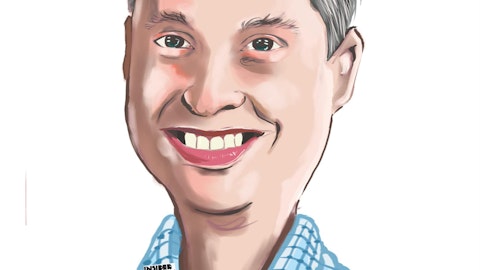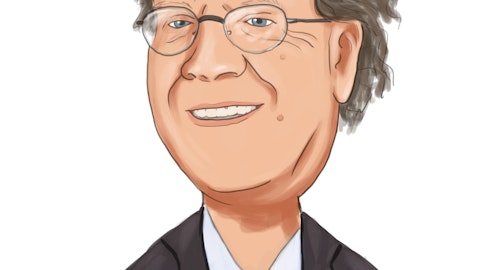Taiki Okada: Thank you. Just one follow-up question. So the PE exits in the United States, I suppose there have been one or two perhaps PE exits. So that situation, in fact, remains to be unchanged going forward as well.
Hitomaro Yano: Did I say one or two? I may have said one or two or three, but are you asking me the question whether we have said so for the first quarter results three months ago, the timing or throughout the year, there could be a possibility of some exits. And there are some equity investments that we have made to keep the association or the partnership going. But we may be able to perhaps exit out of some, one or two perhaps, investment. I may have expressed that in such a way. And we would like to, of course, stick to such a plan. We have not, of course, not realized that, but I think we do foresee an opportunity to exit out of those investments.
Taiki Okada: Thank you very much.
Operator: Citigroup, Niwa, please.
Koichi Niwa: Yes, this is Niwa, Citigroup. Can you hear me?
Hitomaro Yano: Yes, we can hear you.
Koichi Niwa: Thank you. Question about banking, two questions. One is impact of ICC for this fiscal year and next fiscal year. How do you think this will impact your company performance? What is your analysis? Was it a surprise or not? And secondly, strategically, green and nonrecourse loans are done, but what is the current status? And what is the current status of the spread? Thank you.
Hitomaro Yano: ORIX Bank is a bank. So higher interest rates would generally have a positive impact on the banking business. They do a lot of loans for small condominiums for investment purposes, but many of them are linked to the long-term prime rate. You may be surprised, but it’s true. So if the five-year interest goes up, then ORIX Bank’s profit actually goes up, that is the structure. So interest rate increase, especially yield curve steepening is actually quite beneficial for ORIX Bank. BOJ’s interest rate policy change. It is very difficult to judge how much of a change they’ve actually made. But mid to long-term zone interest rate will continue to creep up, which is good for us. I don’t know to what extent we can expect more.
But yes, we do have expectations. That’s my explanation about banking business, mostly loans for investment purposes. Other than that, we are just making all our efforts, we are getting people together and Environment Energy Head, Nishikori, now moved to banking business. And he’s using his own network to grow the business, and the business is growing by several hundreds of billions of yen. But if not of the accumulation gain, we will take advantage of the trust function and the sale of the assets and to turn this into another capital recycling business. So in terms of impact for the group, maybe it doesn’t look like much, but at the banking business level, there’s definitely steady growth. So please continue to watch them for a while. That’s the kind of status.
Koichi Niwa: Thank you very much for your very detailed explanation. That was very clear.
Operator: So it is almost time to finish up this session. So the next question is going to be the final question from Sakamaki of Mizuho Securities. Before we ask Yano to close the session.
Naruhiko Sakamaki: So I am Sakamaki from Mizuho Securities. Thank you. And I would like to ask questions about Asia as well as Australia. So in the last year, you shared with us the idea of increasing the asset, but I don’t think you have been generating much of the profit. So the contribution to the profit as revenue as a result of the asset funding balance of assets that you have been building up over time. How long does it take?
Hitomaro Yano: So with regard to Asia as well as Australia, the traditional leasing business and also investing business are the two major businesses. And the traditional, that is equity method holding, and we have been selling those assets as well. So the profit that we have been generating, in fact, are patchy, but we have decreased the asset of the leasing during the period of COVID pandemic. So the contribution from that leasing businesses although gradual, but we are beginning to generate some profit. So investment, in fact, does fluctuate over time. So it doesn’t look — it is suboptimal. But in the great China, we have been making quite a bit of investment in the past. But as for the new investment, we have not been that proactive.
While we would like to rather work on the exit of the investment that we have made in the overseas location. I don’t know how much. But in Asia as well as in Australia, inclusive of Greater China, that is, we would foresee the opportunity to exit out of those investments so that we can make a positive contribution to the revenue as well as profit that could be generated. So I hope this is — I think that this may not answer to your question in a direct manner. But this is how we foresee.
Naruhiko Sakamaki: Okay. Thank you very much.
Operator: Thank you, Yano. Closing remarks, please.




